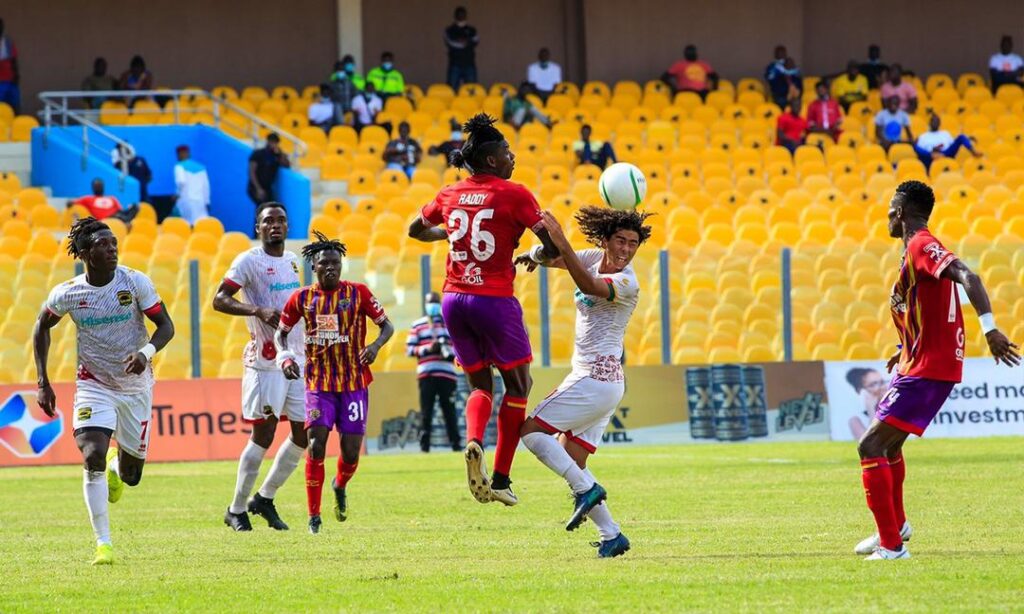
Ghanaian football powerhouses Asante Kotoko and Hearts of Oak are demanding greater transparency from the Ghana Football Association (GFA) regarding revenue from TV rights and sponsorship deals.
In a strongly-worded joint statement, the two clubs called for prior disclosure of their televised matches before each season begins, arguing that this would ensure a fair share of income distribution.
“The GFA should disclose to Kotoko and Hearts of Oak before the commencement of each football season the total number of our matches that will be televised to ensure that a fair percentage of the revenue from sponsorship and TV rights deals is determined and duly paid to us,” the statement read.
Revenue Concerns and Calls for Clarity
Kotoko and Hearts, as the two most commercially valuable clubs in Ghana, often draw the largest audiences for domestic football.
However, they believe that their financial returns from broadcast deals do not reflect their market value.
The clubs argue that without clear revenue-sharing guidelines, they risk being shortchanged in financial allocations, a situation that could further weaken club finances and player investment.
“As the biggest clubs in the country, our matches are the most watched. We must have clarity on how much revenue is generated from our games and receive a fair share,” the statement emphasized.
GFA’s Role and Potential Reforms
The Ghana Premier League’s broadcast and sponsorship deals are currently managed by the GFA, which negotiates with media partners and corporate sponsors.
However, Kotoko and Hearts are calling for a more club-centric approach, ensuring that those who generate the most value receive equitable financial returns.
This demand aligns with a broader push for financial independence, as the clubs have also called for an autonomous league free from GFA control.
What’s Next?
The GFA has yet to respond to these latest demands, but the issue of revenue transparency has long been a point of contention in Ghanaian football.
With Kotoko and Hearts now taking a public stand, pressure is likely to mount on the football governing body to reveal detailed revenue figures and reconsider how TV and sponsorship funds are distributed.
This latest call for transparency could mark a turning point in Ghanaian club football, as teams seek greater financial control in an increasingly commercialized football landscape.